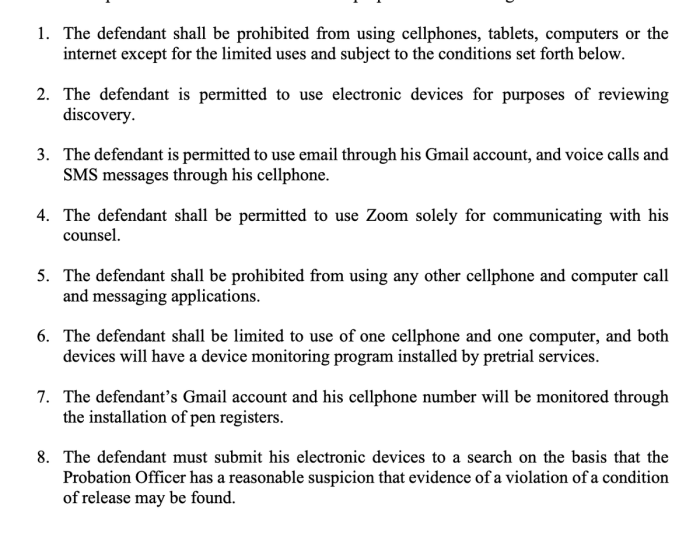Emails and their attachments are not subject to pretrial discovery – As the digital age transforms legal landscapes, the protection of emails and their attachments from pretrial discovery has emerged as a crucial topic. This discourse delves into the legal underpinnings, ethical considerations, and technological challenges surrounding this issue, providing a comprehensive analysis of the interplay between discovery rights and privacy concerns.
The legal basis for safeguarding emails and attachments stems from the recognition of privacy rights and attorney-client privilege. Courts have consistently upheld these protections, acknowledging the sensitive nature of electronic communications. However, exceptions exist, such as when emails are relevant to a crime or when there is a compelling need for discovery.
Legal Protections for Emails and Attachments

Emails and attachments enjoy legal protection from pretrial discovery under certain circumstances. The primary basis for this protection is the attorney-client privilege, which safeguards communications between an attorney and their client. Other privileges, such as the work product doctrine, may also apply in some cases.
Scope of Protection
The scope of protection for emails and attachments varies depending on the applicable privilege. Attorney-client privilege generally protects communications that are:
- Made in confidence
- Between an attorney and their client
- For the purpose of obtaining or providing legal advice
Exceptions
There are a few exceptions to the protection afforded by attorney-client privilege. These include:
- Communications that are made in furtherance of a crime or fraud
- Communications that are not related to legal advice
- Communications that are made in the presence of a third party
Case Law Support, Emails and their attachments are not subject to pretrial discovery
Numerous case laws support the protection of emails and attachments from pretrial discovery. For example, in Upjohn Co. v. United States(1981), the Supreme Court held that communications between an attorney and their corporate client are protected by attorney-client privilege.
Balancing Interests in Discovery and Privacy: Emails And Their Attachments Are Not Subject To Pretrial Discovery

The legal protections for emails and attachments must be balanced against the need for discovery in legal proceedings. Courts consider several factors when determining whether to order discovery of emails and attachments, including:
- The relevance of the emails and attachments to the case
- The potential for harm to the privacy of the parties involved
- The availability of other sources of information
Courts generally favor discovery when the emails and attachments are highly relevant to the case and there are no other sources of information available. However, courts may limit discovery or order protective measures to protect the privacy of the parties involved.
Ethical Considerations in Email Discovery

Attorneys and parties involved in email discovery have ethical responsibilities to ensure that discovery is conducted fairly and ethically. These responsibilities include:
- Avoiding the use of discovery to harass or intimidate the other party
- Preserving the confidentiality of privileged communications
- Cooperating with the other party in the discovery process
Failure to comply with these ethical responsibilities can result in sanctions, including the exclusion of evidence or even dismissal of the case.
Essential FAQs
What is the scope of protection for emails and their attachments?
The scope of protection varies depending on the jurisdiction and specific circumstances. Generally, emails and attachments are protected from discovery unless they are relevant to a crime or there is a compelling need for discovery.
How do courts balance the interests of discovery and privacy?
Courts weigh the potential harm to privacy against the necessity of obtaining evidence. Factors considered include the relevance of the emails, the privacy interests at stake, and the availability of alternative sources of evidence.
What are the ethical considerations in email discovery?
Attorneys must navigate conflicts between their obligations to their clients and the pursuit of discovery. They must also consider the privacy rights of third parties and the potential consequences of disclosing sensitive information.